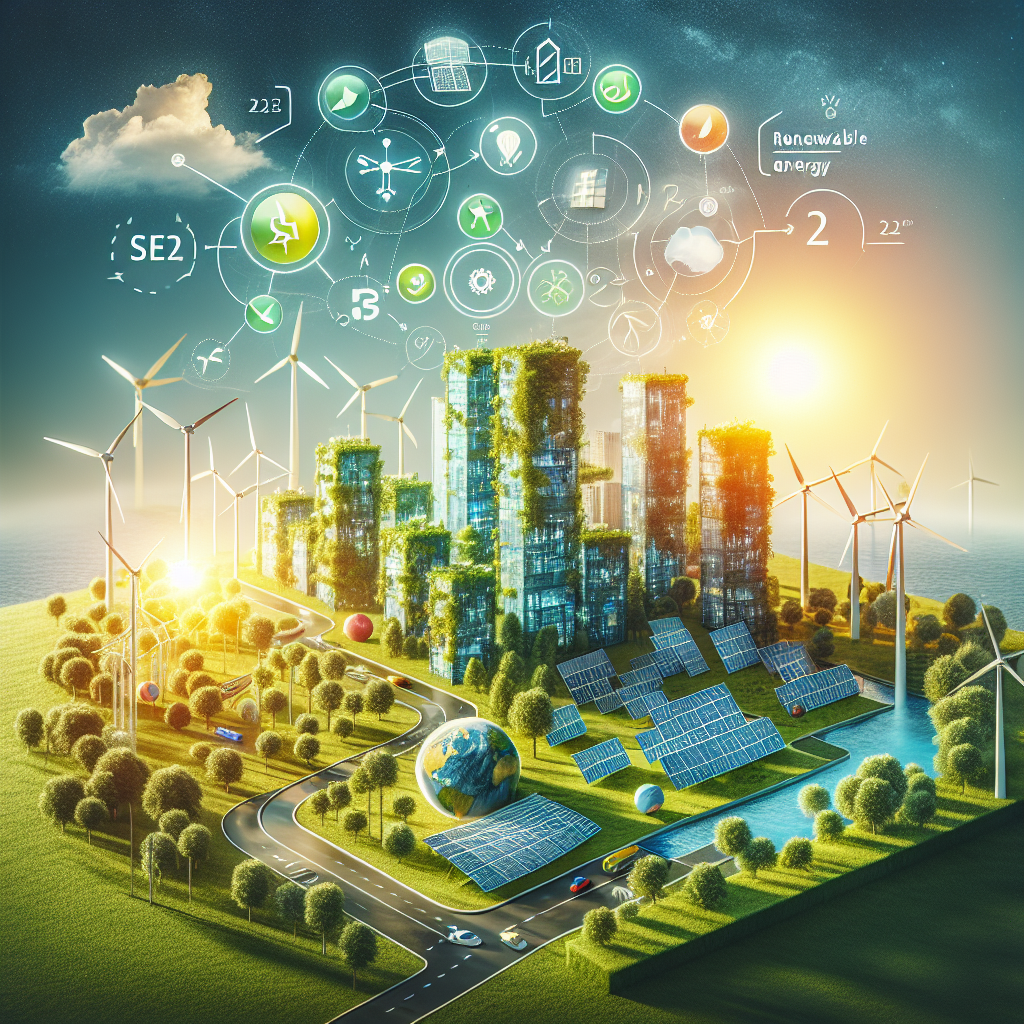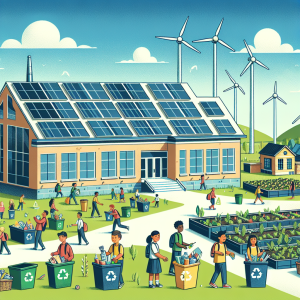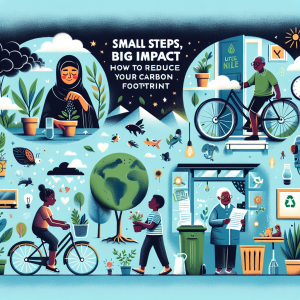The future of sustainable energy sources is a topic of vital importance, drawing attention from policymakers, researchers, and the general public alike. As the world grapples with climate change and environmental degradation, sustainable energy solutions offer a beacon of hope. This article explores emerging trends and technologies in sustainable energy, their potential impacts, and the challenges they face.
Solar power continues to lead the charge in the renewable energy sector. With advancements in photovoltaic technology, the efficiency of solar cells has improved dramatically. Innovations such as perovskite solar cells promise even greater efficiency at a lower cost. These materials, when used in combination with traditional silicon solar cells, can potentially exceed efficiency limits previously thought unattainable. Moreover, the integration of solar power with energy storage systems, like lithium-ion batteries, is becoming increasingly feasible. This combination addresses the intermittency problem, allowing solar energy to be stored during peak sunshine and used when the sun isn’t shining.
Wind energy is also seeing significant advances. Offshore wind farms, located in deeper waters, are being developed to harness stronger and more consistent winds. The use of floating wind turbines is a promising technology that could unlock vast new areas of the ocean for wind power generation. These innovations could significantly increase global wind energy capacity, helping to reduce reliance on fossil fuels. Moreover, the implementation of smart grid technologies enables better distribution and management of wind power, enhancing its reliability as a sustainable energy source.
Hydroelectric power remains a key player in the sustainable energy landscape. However, traditional dam-based hydroelectric projects can have negative ecological impacts. To mitigate these, there is a shift towards small-scale hydroelectric systems, also known as micro-hydro power. These systems, often implemented in rural or remote areas, provide renewable energy with minimal environmental disruption. Advances in turbine technology and water flow management are increasing the efficiency and viability of micro-hydro systems, making them attractive options for expanding sustainable energy access.
In addition to these well-established technologies, bioenergy is gaining traction. Bioenergy relies on biological materials, such as plant and animal waste, to produce electricity, heat, or fuel. The development of second and third-generation biofuels, derived from non-food biomass and algae, respectively, highlights the potential of bioenergy to contribute significantly to sustainable energy goals. These fuels offer a more sustainable and less environmentally damaging alternative to first-generation biofuels, which often compete with food production.
Another promising development is the rise of hydrogen as a clean energy carrier. Green hydrogen, produced through water electrolysis using renewable energy, has the potential to decarbonize sectors that are difficult to electrify, such as heavy industry and long-haul transportation. Investment in hydrogen infrastructure, including production, storage, and distribution networks, is crucial for realizing its potential. Countries around the world are launching national hydrogen strategies, indicating the growing recognition of its role in a sustainable energy future.
Geothermal energy is yet another renewable source gaining attention. This technology harnesses heat from the earth’s interior to generate electricity or provide heating. Enhanced Geothermal Systems (EGS) are a novel approach that involves creating artificial reservoirs in hot rocks, significantly expanding the potential areas where geothermal energy can be harnessed. With the ability to provide a constant, baseload power supply, geothermal energy could complement other variable renewable sources, such as wind and solar.
The economics of renewable energy are also trending in a favorable direction. The costs of solar and wind energy have plummeted over the past decade, making them increasingly competitive with fossil fuels. Government policies, such as subsidies and tax incentives, further enhance their attractiveness. Additionally, the concept of a circular economy is gaining traction, encouraging practices that reduce waste and promote the reuse and recycling of products and materials in the energy sector.
Despite these promising advancements, several challenges remain. Energy storage is one of the most pressing issues, as it is essential for managing the variable nature of renewable energy sources. While battery technology is improving, the development of large-scale, cost-effective energy storage solutions is critical for ensuring a stable energy supply. Furthermore, the infrastructure required to support renewable energy—such as electric grids and charging stations—needs significant investment.
Public policy and regulatory frameworks play a crucial role in shaping the future of sustainable energy. Carbon pricing, emissions trading systems, and renewable energy mandates are effective tools to spur the growth of sustainable energy. However, international cooperation is necessary to address global challenges, such as cross-border grid connections and the sharing of technology and best practices.
Inclusive stakeholder engagement and community involvement are also crucial for the successful deployment of sustainable energy projects. Ensuring that transitions to renewable energy are equitable and provide benefits to all segments of society is essential for gaining public support and facilitating widespread adoption.
The future of sustainable energy sources is both exciting and challenging. A shift towards a clean energy paradigm offers the promise of a healthier planet and a more resilient economy. By continuing to innovate and invest in these technologies while addressing the associated challenges, the global community can make significant strides towards a sustainable and clean energy future.



